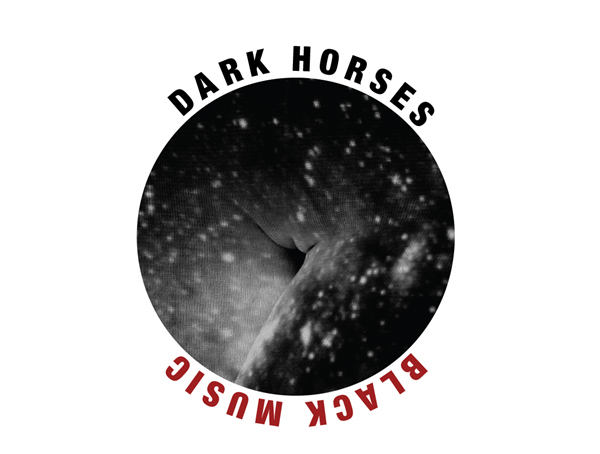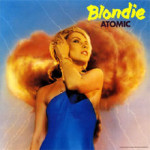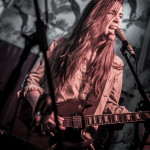For every artists or band successively inspired and imbued with the quality of the stoic melancholic delights of the Velvet Underground & Nico, there are just as many who make a right pigs ear of that same influence.
On the surface it does appear that the Brighton-based outfit Dark Horses are indeed schooled in all things Velvet and Nico-esque, especially all the dirge-y and droning parts; surrounded as they are by a backdrop of esoteric semiotics and symbolism; dressed like a cross between ‘the living dead’ motorcycle club from the cult British horror film, Psychomania, and the ‘Bela Lugosi’s Dead’ looning Bauhuas. Hell, even their mascara-bleeding chanteuse Lisa Elle can break out into introspective bouts of Swedish when needs must – on the folksy brooding twang-y ‘Sanningen On Mig’. But despite all this their pale imitations fail to add anything original or challenging to a sonic template that’s already been deconstructed and reassembled by two generations of musicians.
That’s not to say all is lost, as the Dark Horses sound more convincing when they move towards the light, as they do on ‘Radio’.
Brighter, warmer and more tuneful, this plaintive rousing single should define and drive the group, unfortunately even when the darkly-lit Phil Spector production, via the Howling Bells, alludes to something special they feel compelled to throw in a bland wailing guitar cycle and chain baiting outré. These glimmers of Gothic pop escapism are kept to a bare minimum, which is a crying shame. However on a whimsical note they do cover the Talking Heads ‘Road To Nowhere’, turning the original into a Peter, Bjorn and John-esque 60s backbeat jaunt, but apart from the drifting and longing harmonica sonnet ‘Anna Minor’ – imagine The Cardigans on Mogadon – the rest of the album retreats into a pastiche of gloomy shoegazing.
Shrouded and suffused by Richard Fearless’s (Death In Vegas) fuzz filled and oscillating production, some of the emptier vessels and directionless musings are given an air of mystery and doom. Again, it’s when the effects are stripped that things sound better, especially with Elle’s vocals, which when left unguarded and without enough echo to drown in, shine.
Hardly surprising but the appearance of Kasabian’s front man Tom Meighan on the graveyard lover’s partial duet, ‘Count Me In’, just burdens the whole enterprise. Really a Kasabian song in all but name, this moody balled drags its bones across a quagmire of dirge and foggy backing. The Dark Horses toured with the Leicester rockers, and now they seem to be letting that union rub-over on them for all the wrong reasons: all those Kasabian reference points are easily marked out, from the vague Krautrock indulgences to Byzantium occult, funnelled into one amorphous heap.
An artifice of Kenneth Anger posing satanic leather and 80s Goth (Sisters Of Mercy, The Cult, Siouxsie and the Banshees) vainly attempts to distract from the lack of ideas. Fellow Brighton residents Esben and the Witch, though not entirely in the same covenant, have managed to partially add something interesting and emotive the bewitching séance moody genre if the Dark Horses haven’t. So by all means deck yourselves out in the finery of chic-occultism, but pursue the magic of Radio (without doubt one of 2012s best singles and in my end of year list) and step out of the darkness.
Released 29th October 2012
[Rating:3]
http://www.darkhorsesmusic.com




